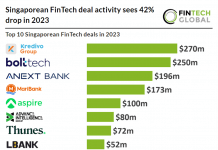A recent study by RFI Global has found that consumers worldwide are turning to buy now, pay later (BNPL) as a more responsible way to manage their purchases and cash flow.
The report – titled The Global State of BNPL: How banks and providers can champion customer interest – examined the attitudes and use of BNPL credit across Europe, the US and Asia Pacific. The firm’s BNPL tracker surveyed over 14,000 consumers across 11 countries twice a year about their attitudes and towards and use of services such as BNPL.
What appeals most to shoppers about BNPL? According to the research, no interest changes and convenience was important at 33% each, improved cash flow management so they can pay other expenses at 28% and helping them to budget at 31%.
However, the report found that consumers still trust banks more than they do BNPL providers such as Clearpay, Afterpay and Affirm. Despite this, overall, the consumers feel the FinTechs have their best interests at heart and don’t associate them with having hidden fees and charges.
Consumers in the UK stated they felt a BNPL service offered by a bank would be more secure at 36%, more widely accepted and more reliable at 31% each and 53% would consider a BNPL service offered by a bank to be extremely appealing compared to only 35% who rate a dedicated third-party BNPL provider the same.
There are still some barriers for banks to overcome in terms of BNPL. Up to 35% believe that a bank-offered service would be more expensive, 24% believe it would be more complicated to use and 23% believe it would offer fewer offers and promotions. In addition, there are worries surrounding credit score impact and hidden fees – with 45% of French consumers stating that they are worried using BNPL would impact their credit scores, with another 37% in France not trusting themselves to make regular scheduled payments.
Despite these identified downsides, frequent users said they were willing to pay a fee for excellent experience, with 47% of BNPL users in the UK and 49% in Australia stating they would still use the provider even if fees were attached to it.
RFI found as well that the no-interest, no-fee and convenience of BNPL have boosted its uptake in countries as Australia, Canada, Mexico, Mainland China and the UK. Meanwhile, in France, India, Singapore, Hong Kong and the US, it is convenience which is driving usage.
RFI Global global head of consumer credit, deposits and payments Kate Wilson said, “The majority of BNPL users are millennials who want to manage their money more efficiently and avoid debt. Indeed, our research suggests that most BNPL users are averse to debt. They want to buy what they can afford and are aware of the dangers and cost of credit.
“BNPL’s simple credit model provides a convenient way for them to spread the cost of some purchases over several weeks or months in equal payments, assisting with budgeting without resorting to a loan, going overdrawn or putting the expense on credit cards. They can buy what they want, when they want, and take full advantage of promotions or sale items.
“The high degree of consumer trust in banks presents an opportunity for them to launch their own services. Some banks are already dipping their toes in – such as Barclays through its partnership with Amazon – and many more are considering the launch of BNPL services. To compete, banks will need to leverage their trust advantage and improve upon the focus that the fintech providers place on providing a great customer experience. They will also need to remain competitive on price and other incentives. Banks have a limited window of opportunity to do this before fintech BNPL brands win customer trust and loyalty themselves.”
Copyright © 2022 FinTech Global











